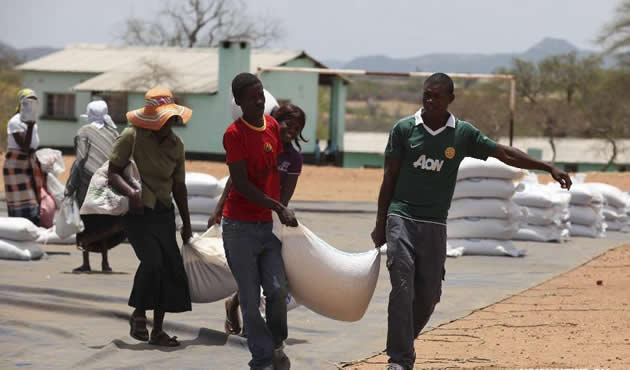EDITORIAL COMMENT: Intensify fight against food insecurity

The recurrent droughts that have affected the country over the past few years demand innovative policies and programmes on the part of the government, farmers and relevant stakeholders to ensure that their impact is lessened.
Food insecurity has become more common lately as droughts are now more frequent, thanks to climate change. In times of poor harvests, household incomes come under severe pressure and the government is called upon to provide food to vulnerable groups. Our government has done well in that regard, despite immense capacity constraints occasioned by illegal Western sanctions.
This year for instance, about four million people are facing hunger countrywide after yet another unsuccessful agricultural season, this one induced by the El Nino weather phenomenon. Government resources that should have been used on other development priorities have to be diverted to import food. Development partners, working through the UN World Food Programme have been very helpful too in helping the government to feed the hungry.
However, the fight against food insecurity has not always been reactive. The government has running programmes to boost agriculture production through providing inputs to farmers, rehabilitating irrigation schemes and promoting the growing of drought- tolerant crops.
In September 2005, the government through the Reserve Bank of Zimbabwe launched Operation Maguta/Inala, a national food security promotion agenda whose lead implementing agency was the military. Then soldiers and communities worked on Agricultural and Rural Development Authority (Arda) farms in various parts of the country to grow a range of crops to feed the people. The initiative had great potential and did well in equipping irrigation schemes, producing food, enhancing villagers’ incomes and standards of living.
However, its greatest undoing was that it was implemented during the worst phase of the economic challenges of the past 16 years.
We are about to see an almost similar initiative, the Targeted Command Agriculture Programme, as announced by Vice-President Emmerson Mnangagwa on Wednesday.
Launching the National Desilting Programme at Musengezi in Mashonaland West, VP Mnangagwa said the government is planning to produce at least two million tonnes of grain under the programme which will see 2,000 farmers being provided with inputs. Anchored on irrigation infrastructure development, the programme is part of a raft of interventions that the Government is putting in place to lessen the impact of climate change and the resulting food shortages.
“There is a need for careful planning to ensure there are no food shortages in the country. As Government, we have come up with measures which will ensure that we reach food self-sufficiency in the shortest possible time,” said VP Mnangagwa.
“Our programmes are after a realisation that we have experienced successive droughts but as a country we are endowed with many water bodies that can be used for irrigation so that we have summer and winter cropping.”
Two hundred farmers from each of the country’s 10 provinces will be identified and supported by the Government with inputs including chemicals, seed and equipment enough to plant 200 hectares.
The farmers need to produce at least five tonnes of grain including wheat and maize per hectare with provision to retain any excess above the threshold for their use. They are expected to plant twice in winter and summer. Some of the equipment and machinery are being imported from Brazil under the South American country’s More Food for Africa programme. Other machinery would be procured in Belarus, Russia and China.
“We have agreed as Government that all those near dams should be supported with irrigation infrastructure but if one does not want to use the water to produce then they have to move and stay away from water bodies to make way for those who can,” he said.
He said the programme complements the one that has seen the resuscitation of Arda farms across the country, which would see them progressively raising capacity to put 1,000ha each under grain at any given time.
We look forward to the Targeted Command Agriculture Programme succeeding in meeting its objectives. We are hopeful because the participating farmers would be centres of excellence where all the necessary inputs would be concentrated for maximum output. Such direct targeting of inputs has higher chances of success than in the prevailing situation where the government and development partners provide inputs to farmers who would then be expected to put all the support to good use for the desired production levels to be achieved.
While these have their advantages such as promoting farmers’ autonomy, they tend to spread resources too thinly, thus it is difficult to measure their success or failure.
Another likely benefit is that the new scheme would help boost farmers’ skills as the government is widely expected to have dedicated teams to the 2,000 farmers for effective utilisation of resources. Any technical questions would have to be immediately attended to for production to proceed smoothly.
For the programme to succeed, requisite equipment and machinery would be deployed, as VP Mnangagwa said. This will assist in enhancing the national mechanisation agenda. A well-equipped and mechanised farmer is most likely to be more efficient in his work than one who relies on manual labour. His productivity is often higher as well.
The Targeted Command Agriculture Programme should complement existing programmes such as the Presidential Well-Wishers Special Agricultural Inputs Scheme, the government input initiative and others run by non-governmental organisations.











Comments